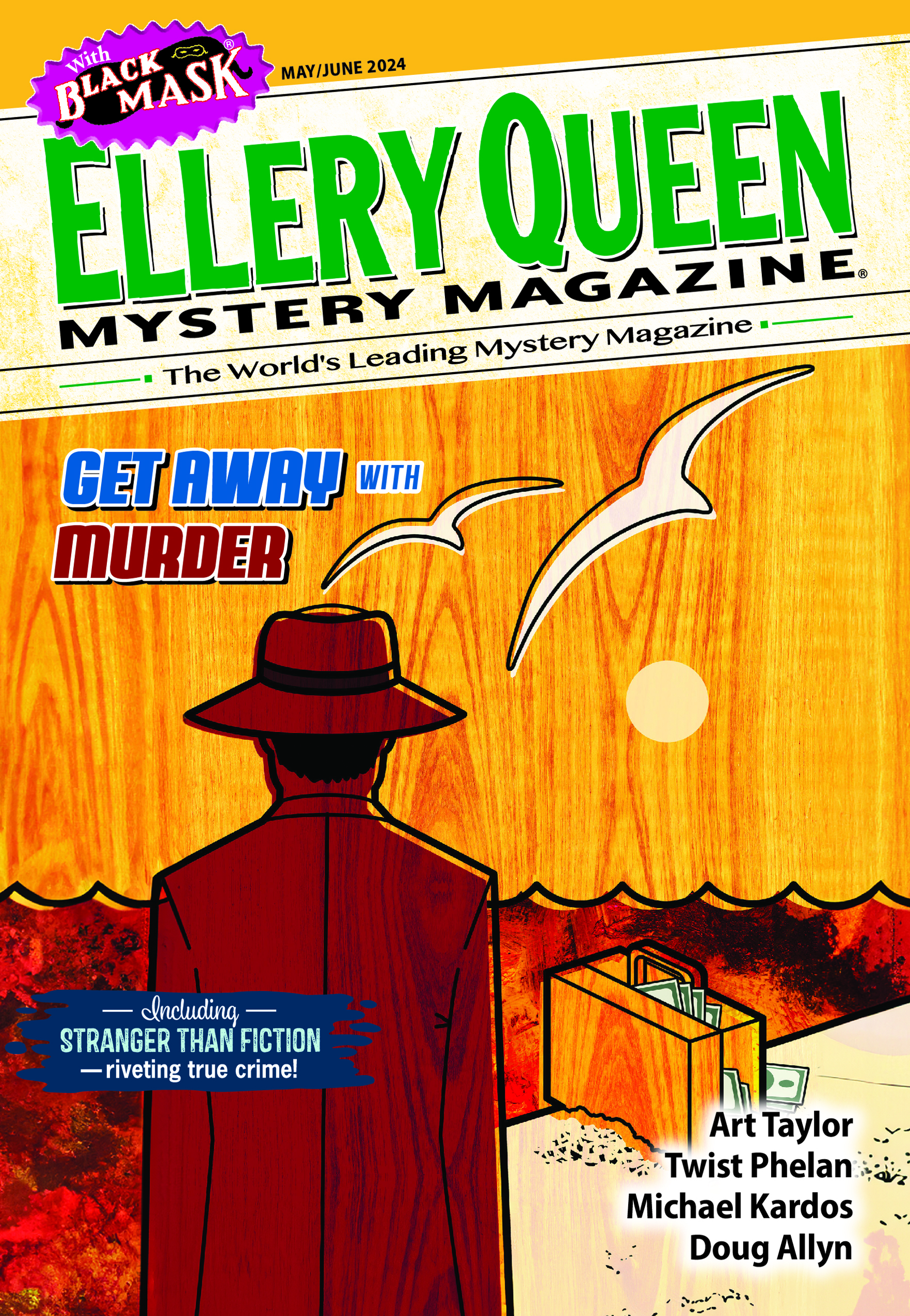Brendan DuBois’s fiction-writing career began in 1986 in EQMM’s Department of First Stories. As he mentions in this post, he’s had more than 150 short stories published since then, all while also pursuing a successful career as a novelist. Brendan’s considerable and distinguished output spans more than the mystery field. 2016 will see three new DuBois novels added to his body of work. Dark Victory, published in January, is his first science-fiction novel (Baen Books). This month, Midnight Ink released his standalone thriller Night Road, and in November, Storm Cell, the eleventh novel in his mystery series starring Lewis Cole, is due from Pegasus. Brendan is the recipient of many honors for his fiction, including two Shamus awards from the Private Eye Writers of America. Most recently, he tied for second-place for the 2015 EQMM Readers Award, for his story “The Lake Tenant” (EQMM November 2015).—Janet Hutchings
So you’re a writer.
Yep.
Have I ever read anything you’ve written?
(Pause) Next question, please.
Okay, then. What have you written?
At this particular point in time, I’ve written twenty novels and more than 150 short stories. Most of my fiction has been mysteries and thrillers, although I’ve decided to go play in the world of science fiction as well.
Wow! That’s an impressive output.
I guess. When you grow up in New England with its Puritan background, combine that with a Catholic school education and working as a journalist, when a deadline means a deadline, working constantly and diligently is something that comes naturally to me.
But why so much?
So much what?
So many novels, so many short stories. Why don’t you just focus on writing your books? Wouldn’t that make sense?
But I enjoy doing both. Why should I give it up?
But there has to be a real problem in going from a novel to a short story. I mean, isn’t there a difference in writing a short story and writing a novel?
That’s right, about three hundred pages difference.
Please.
Sorry, couldn’t help myself. There’s a world of difference between writing a novel and a short story, but there’s also a world of misunderstanding.
Like what?
It’s pretty clear to everyone that when you write a short story, space is at a premium, and so every piece of dialogue, every description, every piece of the plot has to make a difference, has to count. But that doesn’t mean that when you start working on a novel, you’re given free rein to go on and on and on… just padding the story with excessive description and scenes that don’t propel the story but make the author feel good.
Are you sure about that?
Pretty sure.
But there are lots of authors who are known for padding their novels, for making their books hundreds of pages longer than need be. You know, authors like [redacted], [redacted] and especially [redacted].
Well, that’s when I have to bring my mom in to render an opinion. “Just because your friends are going to jump off a cliff, does that mean you have to?” And just because some authors get away with padding their novels doesn’t mean you have to follow their lead.
Your mom sounds like a pretty smart lady.
Well, she did bring up six sons without any of us being arrested or burning the house down, so yeah, I’d say you’re right.
So what you’re saying is that short stories are a good way to prepare for writing a novel.
In some ways, yes. In a short story, you should be able to crisply and cleanly tell a story in a limited amount of space. And when it comes time to start your Great American Novel (or perhaps your Somewhat More Than Adequate American Novel), use what you’ve learned in the short story field to your advantage. Don’t think that you’re in the midst of telling a sprawling tale that’s going to run hundreds of pages and go up to 100,000 words. Look at each chapter like it is its own self-contained short story. You’ll find you’ll write better, and that each chapter will have a clear and succinct impact.
Okay… but it seems like even with twenty novels under your belt, you’re still writing short stories, am I right?
That’s right.
But why? What do you have to prove?
I don’t have to prove a thing. Writing a short story is like taking the afternoon off to drive to Boston. Writing a novel is like driving from Boston to Los Angeles. Different experiences, different formats, different types of enjoyment. I just love the style of the short story, the possibility of exploring new things, for experimenting with style and other parts of writing.
But wait a minute… on a purely financial basis, aren’t writing novels more profitable? I mean, take what you put into a short story, compare the payout to what you’d get if you spent that time working on a novel.
You’re probably right.
So why don’t you stop writing short stories?
(Pause) What makes you think I have a choice?

